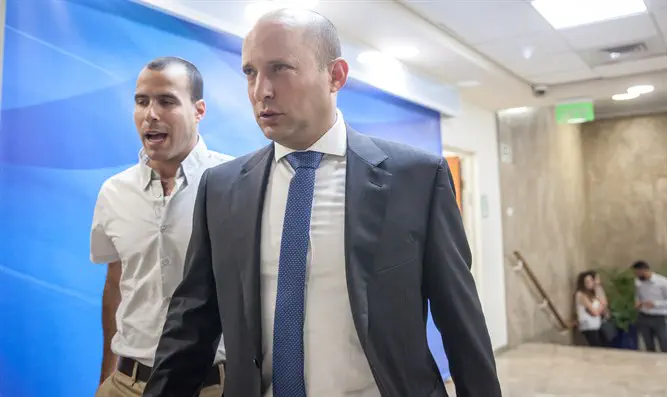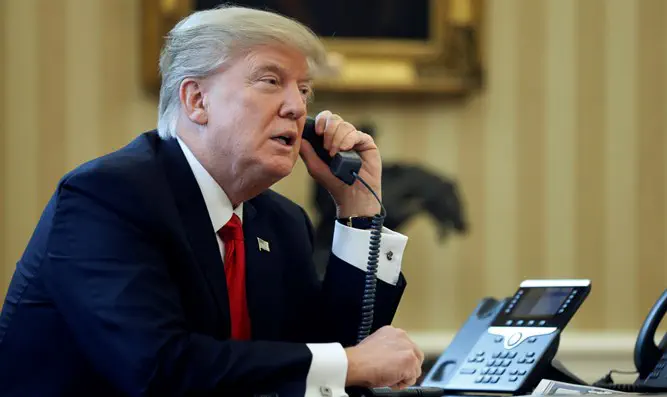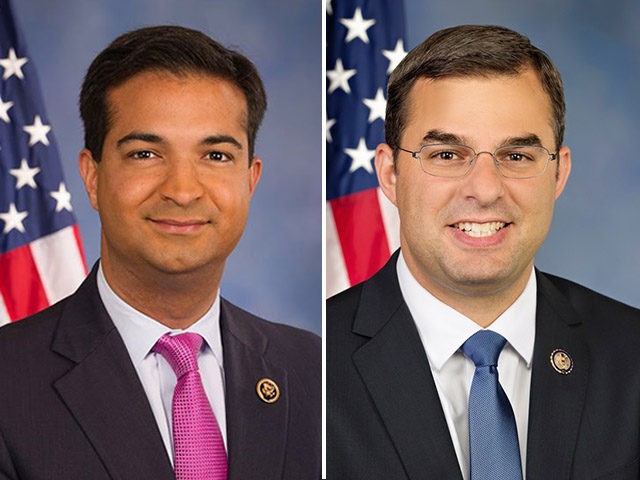BY PAMELA GELLER
The radicalization of our nation’s colleges and universities continues apace. Hard-left, antisemitic propaganda has now been institutionalized in academia. The ugliest rhetoric is sanctioned under the guise of “free speech,” while courageous voices for freedom are blacklisted. My colleagues and I are banned from speaking, for the most part. And in the rare instance where we are invited, violent and vicious pandemonium ensues. Robert Spencer’s talk at the University at Buffalo, Milo at Berkeley or mine at Brooklyn College best demonstrate what we face. And yet, Linda Sarsour, a pro-jihad terror activist and vicious anti-Semite is invited to give the keynote commencement address at CUNY (which we are protesting on May 25th here).
Professor Jonathan Brown is a notorious Jew-hater with a long history of anti-Semitic agitation. His wife is the daughter of Palestinian Islamic Jihad leader Sami al-Arian.

“Georgetown professor Jonathan Brown openly rallies for ‘religious discrimination’ against Jews,” Canary Mission, May 18, 2017:
Jonathan Brown [Jonathan A.C. Brown] has demonized Israeli Jews and Judaism. He has implied that the Palestinian-Israeli conflict could be solved if only “Jews in Israel” were told that “they are not allowed to take stuff that doesn’t belong to them.”In February of 2017, Brown found himself embroiled in controversy after he was accused of supporting non-consensual sex and slavery in early Islam. The incident is detailed later in this profile.Brown has endorsed the Boycott, Divestment, Sanctions (BDS) movement’s attacks on Israel, made under the guise of support for “human rights.”Brown is a tenured Associate Professor of Islamic Civilization at Georgetown University (Georgetown). He is the Alwaleed bin Talal Chair of Islamic Civilization in Georgetown’s School of Foreign Service (SFS). Brown is also the Director of the Alwaleed bin Talal Center for Muslim Christian Understanding (CMCU) within the SFS. The CMCU is known for its links to the Saudi government.Brown is son-in-law to Sami Al-Arian, a former University of South Florida (USF) professor, who was revealed in 2006 to be a leader of the Palestinian Islamic Jihad (PIJ), a specially designated terrorist organization. The United States government deported Al-Arian to Turkey in 2015. Brown’s wife is Al-Jazeera senior producer Laila Al-Arian.Demonizing Israeli JewsOn February 26, 2015 — at a multi-denominational symposium hosted by the Policy Studies Organization (PSO) titled: “Religious Politics in the Middle East: The Religious Dimension of the Israeli-Palestinian Conflict — Brown said: “The problem is that the Israeli political creature, the Israeli political establishment, has not told Jews in Israel that they are not allowed to take stuff that doesn’t belong to them and that is, I think, a fundamental problem… If you can tell people that your religious belief does not give you the right to take the possessions of someone else. Ok? Then If that were established, I think that would completely change, you know, the reality 180 degrees.”Promoting Faith-Based SegregationOn February 26, 2015, at the above-mentioned symposium, Brown suggested that Americans would have to overcome their “allergy to the idea of religious discrimination” if they wanted to envisage a realistic end to the conflict between Israelis and Palestinians. Brown went on to say and that even within the context of a totally secular democratic state, it would be “absolutely disastrous” for Palestinian Muslims or Palestinian Christians if “a Jew’s allowed” to go into the holy places of other religions “and just start praying there.” Brown said that we “need to accept that” Jerusalem might have to become a “very divided city under some kind of international or … external control.”Later, Brown highlighted the Palestinian’s perception of being “encroached upon” by Israeli Jews and posited that a “clear notion of stable boundaries and separations” would lead to a “cosmopolitan atmosphere” and help in “building trust.”Earlier in the symposium, Brown said “I don’t want to say that this isn’t a religious issue, because I think it very clearly is — especially from the Jewish and the Christian perspective — But I think, actually, from the Arab/Muslim perspective not so much.”Brown argued that even “if you could just erase religion from the minds of Palestinians, they would still have all the problems that they have now” and “the problem would still not be resolved.” Brown also posited that the willingness of fundamental Islamists to fight alongside secular Arabs against Israel showed that the fundamentals of the conflict were not religious.Brown later posited: I think the religion is the superstructure and the unresolved issues of control and disenfranchisement and land and power and and rights — these are the real issues.”Presenting BDS as a Muslim DutyOn November 4, 2016, in a podcast titled “Diffused Congruence: The American Muslim Experience,” Brown insinuated that Muslims have a religious responsibility to promote BDS. After listing the various religious, cultural and professional affiliations of some people who support BDS — and singling out some Jews, in particular — Brown went on to say: “Who’s the ones who are going against BDS and undermining it now? It’s the young Muslims. Think about that disgrace.” (7:20).Brown made his comments in the context of slamming a Jewish-Muslim dialogue project known as the Muslim Leadership Initiative (MLI,) which was founded by Imam Abdullah Antepli, the first Muslim chaplain at Duke University. MLI is an educational program for Muslim Americans to “understand why Jews believe what they believe, how Jews see their history, why Jews are so attached to this contested strip of land (Israel) — and thus to better engage with American Jews.” According to Antepli, “MLI aims to put mainstream North American Jewry in conversation with their Muslim counterparts.”Brown said he had no problem with young Muslims “dialoguing” with Jews or Zionists “anywhere.” However, he said that since the organizers “insisted” that the program be held in Israel, it “should reveal what the actual purpose is… to break the boycott in going there.”Demanding Israel Surrender “Power”In the same podcast, after arguing that religious segregation is a necessary prerequisite to trust building, Brown argued the basis for the Arab-Israeli conflict is really a political one, caused by an imbalance of power and resources.Brown argued that if one group has “armed power… resources and international power” and another group does not, then “until that imbalance is rectified, in some way, there’s not going to be a solution.” Brown said you “can’t have peaceful relations or solving an age-old conflict unless the party that is in power surrenders that – until you have some kind of equitable distribution.”In his closing remarks, Brown responded to a request for his solution to the psychological-religious divide between the parties. Brown hypothesized that “theoretically for an Islamist” such as “someone in Palestinian Islamic Jihad (PIJ)” will assert that his religious goals might be to “establish an Islamic state here” and “have Sharia Law” and to “drive all the Jews into the sea.”Challenging “Freedom” and “Consent”On February 7, 2017, Brown’s comments at a lecture titled “Islam and The Problem of Slavery” made national headlines. Multiple media outlets accused Brown of speaking in favor of slavery and rape — a claim which Brown denied. The controversy began with a blog post by freelance writer Umar Lee, who attended Brown’s lecture.On February 8, 2017, it was reported that Brown had conservative journalist Andrew Harrod ejected from the lecture hall, prior to the start of Brown’s formal remarks. Brown referenced the ejection at the beginning of his lecture — and publicly derided the ejected reporter.Below are a selection of controversial statements Brown made during the lecture and the Q&A period that followed:In response to a questioner who characterized imposed slavery as a “wrong,” Brown said: “If you’re Muslim, the prophet of God … had slaves. He had slaves. There’s no denying that. Are you more morally mature than the prophet of God? No, you’re not.”Brown also said: “Slavery cannot just be treated as a moral evil in and of itself, because ‘slavery’ doesn’t mean anything. The moral evil is extreme forms of deprivation of rights and extreme forms of control and extreme forms of exploitation. I don’t think it’s morally evil to own somebody, because we own lots of people all around us and we’re owned by people.”On August 9, 2015 — according to a February 11, 2017 screenshot on Twitter — Brown said on Facebook: “I think people have a lot of things mixed up in their minds, forming a sort of outrage soup they can’t deal with. I think one has to proceed in an orderly way 1) slavery is, in general, allowed in Islamic law. 2) It’s very possible (and it’s actually happened) to declare that slavery is no longer permissible whether due to consistent failings in treatment of slaves or the decision of governments for the common good of the Muslim community. 3) But it’s not possible to say that slavery is inherently, absolutely, categorically immoral in all times and places, since it was allowed by the Quran and the Prophet. 4) Slave women do not have agency over their sexual access, so their owner can have sex with them.”Explaining Non-Consensual SexDuring his February 7, 2017 lecture, Brown challenged modern standards of morality that define human beings as “autonomous agents” and dictate that “the sine qua non of morally correct sex is consent.”Brown went on to say: “For most of human history, human beings have not thought of consent as the essential feature of morally correct sexual activity. And second, we fetishize the idea of autonomy to the extent that we forget – again, who’s really free? Are we really autonomous people? What does autonomy mean?”Brown then followed up: “We have this obsession with the idea of autonomy” — and proceeded to equate the servitude of those pressed into sexual slavery or serving as concubines to individuals subject to voluntarily assumed familial obligations, stemming from marriage.Walking Back Controversial StatementsOn February 17, 2017, Brown defended his statements, in the Washington Post, stating: “These people criticizing me don’t know the difference between the past and the present tense. The talk I gave was historical description.”On February 16, 2017, Brown wrote an article for the online magazine Muslim Matters where he explained his statements. There, Brown wrote: “As a Muslim today, I can say emphatically that slavery is wrong and that Islam prohibits it … It’s easy for me to say this looking back on slavery in American history, because our American slavery was a manifestation of the absolute domination of one human being by another that is, in my opinion, a universal wrong across time and space.”On February 11, 2017, Brown tweeted: “Islam as a faith and I as a person condemn slavery, rape and concubinage.”BDSThe BDS movement was founded in 2005 by Omar Barghouti and asserts that it “works to end international support for Israel’s oppression of Palestinians and pressure Israel to comply with international law.”BDS initiatives include compelling institutions and individuals to divest from Israeli-affiliated companies, academic boycotts, anti-Israel rallies and protests.The movement’s most notable achievement has been the infiltration of university campuses through lobbying for “BDS resolutions.” In these cases, backed by university anti-Israel affiliates, student governments have brought to vote on some form of boycott of — or divestment from — Israel and Israeli-affiliated entities. These resolutions, although non-binding, have been passed by student governments on numerous North American campuses.BDS activity is often aggressive and disruptive. It has been noted that universities that pass BDS resolutions see a marked increase in anti-Semitic incidents on campus. In 2013, when the student government of the University of California Santa Barbara (UCSB) debated a BDS resolution, reports emerged of violent threats and the spitting on a student wearing a Star of David necklace. As a result, the student government chose to vote via a “secret ballot” in order to ensure their own safety.






